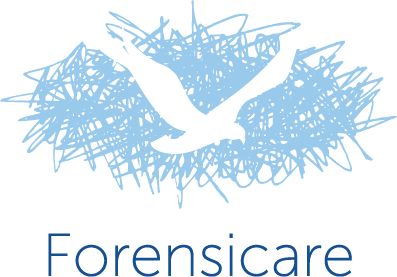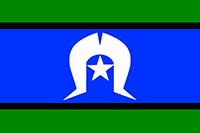
See the difference made by your care.
A forensic mental health nursing career with us offers a range of specialty and varied work opportunities. We strive to provide exceptional care for our consumers who experience complexity in their recovery journey.
We encourage ongoing learning and professional development where you are supported to achieve your career goals.
You will work in a safe, supported and welcoming environment where you can use and grow your forensic mental health skills and professional responsibility. In return, you will see the positive impact you have on the lives of the people as you support.
Frequently asked questions
What does a typical day look like for a nurse at Forensicare?
Generally, nursing with us gives you the opportunity to establish longer-term relationships with consumers. This means you will see the difference you are making in their lives. Your day will vary depending on the context you are working in and where the consumer is in their recovery. Forensicare provides a variety of career pathways for nurses, from hospital to community, prison based and court services. Your day may include:
- Working across acute, sub-acute and rehabilitation units, delivering inpatient care at Thomas Embling Hospital.
- Practising nursing in prison contexts, including bed-based services, psychosocial rehabilitation programs, outpatients, reception assessments and crisis support.
- Supporting specialist community-based assessment and treatment of people with a range of problem behaviours associated with offending.
- Providing specialist mental health assessment and advice to Magistrates in courts.
What nursing experience do I need to work at Forensicare?
There are multiple pathways to joining our team. From student placements through to experienced nurses specialising in forensic mental health, we can provide support and training to advance your career.
You need to be a registered or enrolled nurse, however the qualifications required for each position may vary significantly. Our position descriptions will give you full details of the qualifications required for each role.
Where possible we support you in your training. For example, we may support graduate nurses to complete a Graduate Diploma in Mental Health Nursing, or enrolled nurses to participate in our transition to practice program.
Is working in forensic mental health nursing safe?
Whether working in prison, secure hospital or community settings, you will work in safe and supportive environments.
Forensic mental health is a more controlled environment than many other public mental health settings, which means risks can be reduced and safety can be well planned and managed. For example, we know our consumers at Forensicare and you are not admitting people who have walked in from the street without knowing their risk profile. All our consumers have been profiled and assessed when admitted. For this reason, our nurses have reported feeling safer working at the Thomas Embling Hospital than they did at a large teaching hospital. Working alongside correctional officers in prisons also adds to our nurses’ safety.
We also implement strict occupational health and safety processes at all times to ensure the safety of all workers, consumers and community members
What support, supervision and professional development would I receive?
You will share close working relationships with a large supportive team of mental health nurses and multidisciplinary colleagues. We also provide ongoing training and supervision so you can grow your professional career in interesting, challenging and dynamic working environments.
We believe clinical supervision is invaluable and you will be supported in your ongoing clinical supervision. You can also access education, specialist forensic training and professional development. You can benefit from research opportunities through the Centre for Forensic Behavioural Science – Australasia’s leading centre for forensic mental health and behavioural science research, teaching and development.
This is in addition to the full suite of benefits available to all Forensicare employees.
I don’t have qualifications in forensic mental health nursing. Can I still apply?
Yes. Forensicare supports general registered and enrolled nurses who are looking to transition into mental health nursing. We support nurses to skilfully support consumers and carers from diverse backgrounds in their mental health recovery. Becoming a mental health nurse is highly rewarding and we are here to support you at every stage of your career.
I am a Bachelor of Nursing student. Can I apply for a nursing student placement?
Forensicare has agreements in place with several universities and you should discuss clinical placements with the relevant advisors at your university. If you require more information, call 03 9495 9100 to speak to the Student Placement’s Coordinator.
I am a graduate nurse. How can I apply for your Graduate Nurse Program?
As a graduate mental health nurse at Forensicare, you will be supported in your transition from student to registered nurse.
Find out more about our graduate nurse program and apply today.
Do you accept applicants from overseas?
Yes. We welcome overseas applicants to apply for our vacancies and offer generous relocation support.
Find out more about the support we provide as you relocate and settle into life in Melbourne.
Applicants from overseas are not eligible for our graduate nurse program. Graduates are recruited through the Postgraduate Medical Council of Victoria, a statewide program which sets the rules for application eligibility.
Are there opportunities for career progression at Forensicare?
Yes, there are many rewarding ways to advance your nursing career at Forensicare. Nurses may be able to move into higher positions or different specialisms, depending on your interests and skills development.
Here are some examples of the kind of roles nurses carry out at Forensicare.
Director of Nursing: A member of the executive team who supports the nursing workforce and oversees the Nursing and Practice Development Unit*.
Senior Mental Health Nurse (RPN6): Manages the Nurse Practice Development Unit but also supports the Director of Nursing in nursing workforce development, professional development, promotion and review of nursing practice.
Nurse Practitioners (RPN6): Registered nurses who function autonomously and collaboratively in an advanced and extended clinical role. The scope of practice may include the direct referral of consumers to other health care professionals, prescribing medications and ordering diagnostics investigations.
Nurse Practitioner Candidates (RPN5): Undertake a program of education and model of care development leading to endorsement by AHPRA as a Nurse Practitioner.
Nurse Unit Managers (RPN 5): An integral part of the nursing team, providing high-level management and direction, including planning, development of human, physical and financial resources and overseeing the delivery of multi-disciplinary services for the unit.
Clinical Nurse Consultant (RPN 5) and Clinical Nurse Educator (RPN 4): Provide support to graduate and postgraduate nurses, alongside Clinical Nurse Educators.
Clinical Nurse Educators (RPN 4): Take a leadership role in the professional development, promotion and review of nursing practice. They manage education and training programs, undertake research and quality projects and provide consultation and supervision.
Clinical Administrators (RPN 5A): Contribute to the management and safety of the hospital through 24-hour coordination of nursing resources.
Outpatients Clinical Care Coordinator (MAP RPN4): Ensures timely, high-level mental health assessment and care to those identified as requiring ongoing care and treatment in the outpatient services at Melbourne Assessment Prison. They lead and determine appropriate staff allocations to review at-risk prisoners and co-ordinate feedback to Corrections.
Infection Prevention and Control Nurse: With a focus on infection control, this role is key to ensuring Forensicare is aligned with national standards of care.
Practice Nurse (RPN4): Work closely with unit-based clinicians and General Practitioners at Thomas Embling Hospital, to ensure the effective delivery of primary health care interventions including health maintenance, preventative care, and acute and chronic disease management.
Grade 3 Mental Health Nurses (RPN3): Perform the role of Associate Nurse Unit Managers at Thomas Embling Hospital and coordinate the unit to maintain a high standard of consumer care. Working in prison and community services, RPN3s require a high level of skill in the assessment and treatment of consumers and the ability to work autonomously.
Psychiatric Clinical Nurse Specialist: This classification recognises the development of advanced clinical knowledge and application by a Division 1 or Grade 2 nurse whose level of clinical practice reflects a higher level of skill than would be expected of other Grade 2 nurses, but less than Grade 3 nurses.
Grade 2 Mental Health Nurses (RPN2): Undertake comprehensive nursing assessments of mentally ill consumers and plan, implement and evaluate individual nursing care given to consumers.
Court Nursing Positions (RPN4): Primarily located at Magistrates Courts and provide a clinical service including psychiatric assessment, advice, consultation and referral for users of the Magistrates’ Court.
Community Nursing Positions: Deliver high quality care to address the needs of consumers, carers and professionals, as part of specialist community programs for people who have a forensic history, or are at risk of offending and who have a serious mental illness or present with problem behaviours related to offending.
Nurse Graduate (RPN1)/Post Graduate Program (RPN2): Forensicare offers a graduate nurse program which is undertaken over one year. Following successful completion of academic and clinical components, graduates continue on to a postgraduate year which leads to a Postgraduate Diploma in Psychiatric Nursing.
Psychiatric Enrolled Nurses: Part of the specialist mental health nursing team, under the supervision of a Registered Psychiatric Nurse. They advocate for and facilitate the involvement of consumers, their families and carers in planning and evaluating care and progress toward recovery.
*The Nursing Practice Development Unit (NPDU) promotes the best possible contemporary nursing standards for consumers requiring specialist forensic mental health care. The unit uses evidence-based approaches to care, promotes evaluation and research, and supports the development of clinical governance and accountability of nurses. The NPDU has responsibility for coordinating, evaluating and developing nursing programs including the nursing graduate program and the Forensic Education for Registered Nurses training program, as well as providing quality undergraduate nursing placements.
Who can I contact for more information?
For more information about registered nursing at Forensicare, contact sonya.nutt@forensicare.vic.gov.au – Talent Acquisition Partner, Nursing – or Jo Ryan, Director of Nursing.
For more information about the graduate nurse program at Forensicare, contact: E: Graduate Nurse Program
T: (03) 9495 9203




